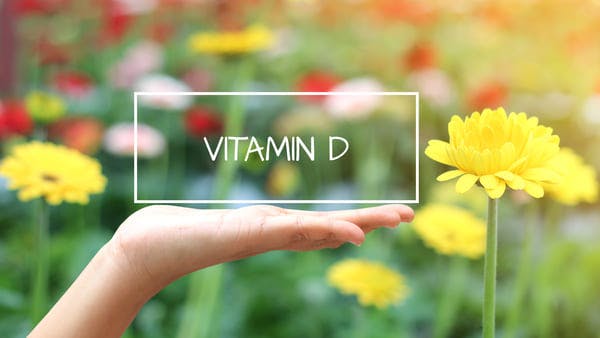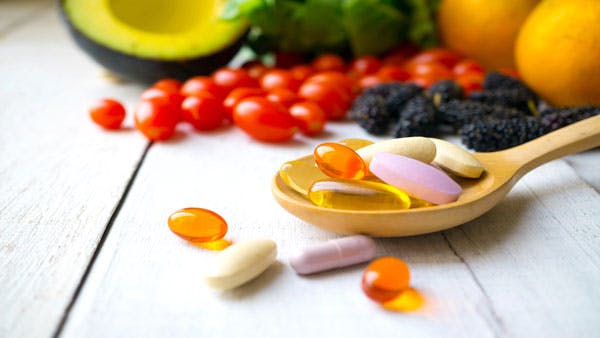Multivitamins for Kids: What You Need to Know
There are many reasons why parents might be interested in multivitamins for kids, one being to support your child's immune system. Understanding the benefits of multivitamins for kids and how to choose the right one is of the utmost importance when it comes to your little ones—keep reading for guidance from the experts at Centrum!

Does My Child Need a Multivitamin?
In general, most healthy children are able to get the nutrients they need from food sources without taking a dietary supplement.[1] Even if you have a picky eater at home, it’s likely that many of the foods they’re consuming—including milk, orange juice, and breakfast cereals—have been fortified with vitamins and minerals such as vitamin D, calcium, iron, and B-vitamins.[1]
However, not getting enough of certain nutrients during key periods can be detrimental to your child’s growth and development. The Food and Nutrition Board (FNB) of the Institute of Medicine has published the following recommended micronutrient intake needs of children:[2]
Recommended Daily Allowance, Ages 4 to 8
Biotin |
12 μg/day (AI) |
Folate |
200 μg/daya |
Niacin |
8 mg/dayb |
Pantothenic Acid |
3 mg/day (AI) |
Riboflavin |
600 μg/day |
Thiamin |
600 μg/day |
Vitamin A |
400 μg/day (1,333 IU/day)c |
Vitamin B6 |
600 μg/day |
Vitamin B12 |
1.2 μg/day |
Vitamin C |
25 mg/day |
Vitamin D |
15 μg/day (600 IU/day) |
Vitamin E |
7 mg/day (10.5 IU/day)d |
Vitamin K |
55 μg/day (AI) |
Calcium |
1,000 mg/day |
Chromium |
15 μg/day (AI) |
Copper |
440 μg/day |
Fluoride |
1 mg/day (AI) |
Iodine |
90 μg/day |
Iron |
10 mg/day |
Magnesium |
130 mg/day |
Manganese |
1.5 mg/day (AI) |
Molybdenum |
22 μg/day |
Phosphorus |
500 mg/day |
Potassium |
2,300 mg/day (AI) |
Selenium |
30 μg/day |
Sodium |
1,000 mg/day (AI) |
Zinc |
5 mg/day |
Cholinee |
250 mg/day (AI) |
α-Linolenic Acide |
900 mg/day (AI) |
Linoleic Acide |
10 g/day (AI) |
AI, adequate intake
aDietary Folate Equivalents
bNE, niacin equivalent: 1 mg NE = 60 mg tryptophan = 1 mg niacin
cRetinol Activity Equivalents
dα-Tocopherol
eConsidered an essential nutrient, although not strictly a micronutrient
Source: https://lpi.oregonstate.edu/mic/life-stages/children
Recommended Daily Allowance, Ages 9 to 13
Micronutrient |
Males |
Females |
Biotin |
20 μg/day (AI) |
20 μg/day (AI) |
Folate |
300 μg/daya |
300 μg/daya |
Niacin |
12 mg/dayb |
12 mg/dayb |
Pantothenic Acid |
4 mg/day (AI) |
4 mg/day (AI) |
Riboflavin |
900 μg/day |
900 μg/day |
Thiamin |
900 μg/day |
900 μg/day |
Vitamin A |
600 μg/day (2,000 IU/day)c |
600 μg/day (2,000 IU/day)c |
Vitamin B6 |
1 mg/day |
1 mg/day |
Vitamin B12 |
1.8 μg/day |
1.8 μg/day |
Vitamin C |
45 mg/day |
45 mg/day |
Vitamin D |
15 μg/day (600 IU/day) |
15 μg/day (600 IU/day) |
Vitamin E |
11 mg/day (16.5 IU/day)d |
11 mg/day (16.5 IU/day)d |
Vitamin K |
60 μg/day (AI) |
60 μg/day (AI) |
Calcium |
1,300 mg/day |
1,300 mg/day |
Chromium |
25 μg/day (AI) |
21 μg/day (AI) |
Copper |
700 μg/day |
700 μg/day |
Fluoride |
2 mg/day (AI) |
2 mg/day (AI) |
Iodine |
120 μg/day |
120 μg/day |
Iron |
8 mg/day |
8 mg/day |
Magnesium |
240 mg/day |
240 mg/day |
Manganese |
1.9 mg/day (AI) |
1.6 mg/day (AI) |
Molybdenum |
34 μg/day |
34 μg/day |
Phosphorus |
1,250 mg/day |
1,250 mg/day |
Potassium |
2,500 mg/day (AI) |
2,300 mg/day (AI) |
Selenium |
40 μg/day |
40 μg/day |
Sodium |
1,200 mg/day (AI) |
1,200 mg/day (AI) |
Zinc |
8 mg/day |
8 mg/day |
Cholinee |
375 mg/day (AI) |
375 mg/day (AI) |
α-Linolenic Acide |
1,200 mg/day (AI) |
1,000 mg/day (AI) |
Linoleic Acide |
12 g/day (AI) |
10 g/day (AI) |
AI, adequate intake
aDietary Folate Equivalents
bNE, niacin equivalent: 1 mg NE = 60 mg tryptophan = 1 mg niacin
cRetinol Activity Equivalents
dα-Tocopherol
eConsidered an essential nutrient, although not strictly a micronutrient
Source: https://lpi.oregonstate.edu/mic/life-stages/children
As mentioned above, most children are able to meet their daily nutritional requirements through diet.[1] For instance, vitamin D—which is essential for building bone strength and preventing rickets—is available in eggs, fish, like salmon and light canned tuna, as well as food products fortified with vitamin D, such as yogurt, cereal, and whole cow’s milk.[2] Heme-iron, another essential nutrient, can be found in foods like red meat, seafood, poultry, and eggs, and non-heme iron can be found in tofu, beans, lentils, and dark leafy green vegetables.[4] However, if you’re concerned that your child is nutrient deficient, talk to a pediatrician about dietary supplements to support their overall health and nutritional needs.[1][3]
How to Choose a Multivitamin for Kids
There are a few factors to consider when choosing a multivitamin for your child. First of all, make sure you’re choosing a multivitamin that targets your child’s age group.[1] A secondary consideration should be whether or not the ingredients of a particular multivitamin could interact with medication that your child is taking. Talk to your child’s pediatrician to make sure that the kid’s multivitamin you have in mind is safe for your child to take.[1]Always carefully consult the product ingredient list and talk to a doctor before giving your child a new multivitamin.
Centrum Multivitamins for Kids
If you’re looking for a kid’s multivitamin that covers all the bases, Centrum has a number of tasty options that even picky eaters will love! Check out some of these Centrum multivitamins for kids:
Centrum MultiGummies Kids Tropical Punch: These great-tasting multivitamins for kids with zinc and vitamins A, C, D, and more are made with no artificial flavors or sweeteners.
Centrum Organic Kids MultiGummies: These fruit-flavored gummies contain 10 essential nutrients to help support kids’ overall health and well-being.










